A few years ago, I was having a conversation with a company about how they handle community, and the question came about community investment. They had seemingly bought into the value of community and seemed to understand the benefits that it has in connecting people interested in their brand.
They weren’t even averse to spending cash on a platform with all the bells and whistles.
I know I know, sounds great, right?
The problem came when I asked who was managing all of this.
The answer was disappointing, “our social media coordinator works a couple of hours a day managing the community.”
I asked if this would be something temporary, to which the response was, “We haven’t budgeted for a head count, but we feel they should be enough for now. If in a year from now, if there’s a need, we’ll look at expanding the team.”
Now a question for you: Would you be surprised if I told you their community program was a complete and total failure?
This kind of attitude of spending on software but not on the people who use it seems to be a kind of chronic illness. When I was in the analytics industry, it was de rigueur for companies to pay hundreds of thousands of dollars for analytics platforms and not spend on the people to analyze the data. Thankfully this is something that has been happening less and less. It’s time for the community software owners to have the same epiphany.
At the end of the day, if you don’t have the right people, no tool can do the work. A tractor does nothing without a driver. Similarly, buying any community platform without someone to drive the program will lead nowhere. You need someone to care about what happens in the community and lead it on a FULL-TIME basis, otherwise, you’re headed for disaster.
Why does full-time matter?
Community isn’t a part-time job because the role and responsibilities of the job are incredibly important — being there for your community whenever it’s needed requires you to be present at all times. Besides building up the community and being a constant presence within the community, a community professional will always have a full plate in front of them. To ensure the success of your community, your community professional is tasked with a number of important items which cannot be put on the back burner or be done on a part-time basis. These tasks include, but aren’t limited to:
- Identifying and managing your most active community members
- Identifying, training and managing moderators
- Designing the proper community structure & configuring the forum software
- Increasing community growth by being active and accounting for natural member churn
- Creating community content or encouraging/managing others to do so
- Developing a comprehensive set of community guidelines & policies
- Working with business stakeholders to increase awareness, usage and membership
- Planning and executing community activities and events that support business objectives
- Measuring community impact through carefully selected impactful KPIs
- Developing how success will be measured, implementing KPIs and setting benchmarks
- Analyzing community data to measure success
Phew!
This is, as I mentioned is non-exhaustive list. Just one or two of these things is a full-time job. I’m sure that I’m missing a whole bunch of items here, but the point, which I hope is not lost on you, is that these are not the activities of a part-timer. These are activities that not only require a dedicated professional but also require that they be deeply engaged in your business. It also needs to be someone who has the room to work these things out; simply put, it cannot happen through only committing two or even 10 hours a week.
Next time you consider the investment you’ve made in your community, you need to make sure that you have the proper allocation of human resources to ensure your success. Your community will appreciate it too.

